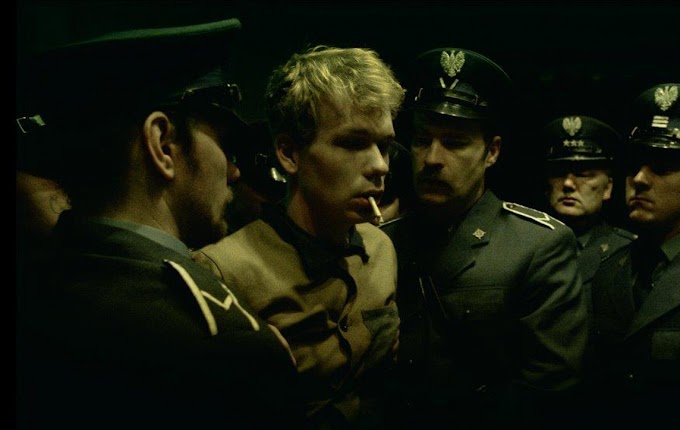Feature film leaves an indelible mark on the viewer’s mind. A film that exhausts their realistic form to engulf in a dynamic of the fantastic and touch the transcendence closely. Possession is porous work, squeaky and vulnerable, which interfere in addition in the visceral disintegration of a couple where an unpleasant frenzy will overcome their life.

Marc, married to Anna, goes home after a long journey. Unfortunately, she seems alienated, changed and no longer wants to live in the family home, preferring to spend her time at her lover. A lover who made her discover the joys of a drunken and unbridled sexuality. The dialogue seems impossible between the two former lovers, ending each time in a cascade of decibels. The disputes are numerous, abrasive and hysterical, but put a face on the evils of the couple’s sentimental dislocation. This is where all the baroque magic of Andrzej Zulawski is organized, in his ability to be radical in his visual bias and to make the bodies move with intensity. The filmmaker imprints a harsh atmosphere, an atmosphere that resembles a post-apocalyptic tale, in a magnified Berlin and an era of the end of the world, where empty alleys and bluish colors combine: as if humanity had been scratched from the surface of the Earth.
Behind an atmosphere that is becoming increasingly convulsive and inhumane, Possession will reveal the existence of this monstrous lover – literally and figuratively – who will prove dangerous and demonic. He is at the origin of the mutation of the young woman who seems, like a chameleon, to integrate into her bosom the malaise and the chaos of an entire city. This affair of adultery could have proved traditional, and could have concealed a small account touching from near or far the simple notion of the couple. But Andrzej Zulawki makes his couple a secondary and manipulative organ; the vital organ being Berlin and its frenzy. Possession is a world film, a film that draws and thinks the very idea of territory: that of a couple, of the disparity of faith, of a sexuality and even that of the borders that define the world.

Andrzej Zulawski does not impose any barriers to his film. His staging revolves around his protagonists, combining broad and circular shots with tight shots on serious faces feeding the troubled and possessed looks of Isabelle Adjani and Sam Neill. in front of us a macabre and horrific epileptic dance where nothing is internalized, where the entire emotional dimension passes through the emulsion of bodies, looks and primitive cries. Sometimes abducted, animal and outrageous, the actors' performances terrify. Their delight will be this famous and tumultuous central scene of the subway where Isabelle Adjani will scream her eyes revulsed, esclaffant like a «crazy», rejecting her demon through all the pores of her body. The horror of the film is therefore integrated not only by its penchant for the codes of genre cinema, but also by its disintegration of realism.
An idea that reconciles the experimentation of genre cinema and sentimental introspection where abandonment becomes the key word: the real is the fantastic, and vice versa. The two will interpenetrate, once again, literally and figuratively, as the sexual sequence between Anna and her mysterious tentacular lover will attest, images that will recall in a frontal way the cinema of David Cronenberg with its close connection between desire and flesh.

Possession is therefore a weighty film, spitting out its irreversible hatred of itself, catapulting its film into a sudden anger, relying on the strength of the performances of its actors who impregnate themselves with the suffering and shame of their character. But the embodiment of the protagonists by the actors – incredible Isabelle Adjani – is not limited to the simple idea of performance.
The work of Andrzej Zulawski is a completely crazy cinema proposal, which takes back the real and a strong political context (the Berlin Wall) to make a dive into human madness.

.png)

0 Comments